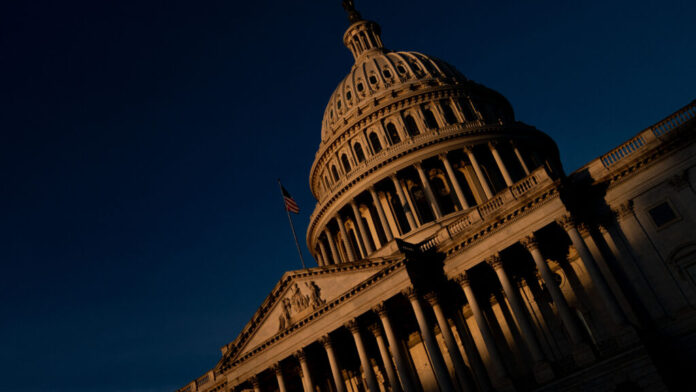"Government Shutdown Looms as Senate Fails to Reach Funding Agreement: What’s at Stake for Americans?"
Federal Government Faces Shutdown as Senate Fails to Pass Funding Bill
WASHINGTON — As the clock ticks toward midnight, the federal government is on the brink of a shutdown following the Senate’s failure to pass a stopgap funding bill. This impasse comes after both Senate Democrats and Republicans presented competing proposals, neither of which garnered the necessary support.
On Tuesday, Senate Democrats introduced a bill aimed at funding the government until October 31. This legislation sought to permanently extend enhanced subsidies for the Affordable Care Act (ACA), reverse Medicaid cuts instituted by former President Trump’s tax legislation, and impose stricter limitations on the White House’s ability to withhold congressionally appropriated funds. However, the bill faced unanimous opposition from Senate Republicans, leading to its defeat.
In contrast, Senate Republicans proposed a "clean" continuing resolution that would extend government funding until November 21. Despite this proposal not meeting the 60-vote threshold required for cloture, it did receive two additional votes compared to a previous funding bill vote on September 19. Notably, Sen. John Fetterman (D-Penn.) was the only Democrat to support the Republican measure last time; this time, he was joined by Sen. Catherine Cortez Masto (D-Nev.) and Independent Sen. Angus King of Maine, who caucuses with the Democrats. Conversely, Republican Sen. Rand Paul (Ky.) was the sole dissenting vote against the Republican proposal.
Key Issues at Stake
The crux of the ongoing debate centers around the expiring enhanced tax credits for ACA marketplace insurance. Senate Minority Leader Chuck Schumer (D-N.Y.) expressed that Democrats are willing to support a continuing resolution that would extend these credits and prevent Republicans from reneging on prior government spending agreements.
On the Republican side, Senate Majority Leader John Thune (R-S.D.) indicated a willingness to consider extending the ACA credits, but only after the government reopens. Historically, Republicans have opposed enhanced subsidies, and even those open to the idea advocate for temporary extensions and the imposition of income caps on the subsidies. Additionally, concerns persist regarding government-subsidized plans covering abortion services.
Democrats are banking on public pressure to compel Republicans to extend the ACA credits, especially as the Kaiser Family Foundation (KFF) projects that premiums could more than double on average if these credits expire. Notices regarding premium changes are set to be distributed imminently, raising the stakes for both parties.
Economic Implications of a Shutdown
The potential shutdown could have significant economic ramifications. The Congressional Budget Office estimates that approximately 750,000 federal employees could be furloughed each day, resulting in a daily economic cost of around $400 million. This figure could decrease if the administration follows through on threats to terminate government employees.
As the situation unfolds, Thune mentioned the possibility of another vote on the Republican bill later this week, indicating that negotiations may continue in the face of mounting pressure from constituents and stakeholders alike.
Conclusion
With the deadline fast approaching, the failure to reach a consensus on government funding underscores the deepening partisan divide in Congress. As both sides prepare for the fallout, the implications of a shutdown could resonate far beyond the halls of government, affecting millions of Americans reliant on federal services and programs.
